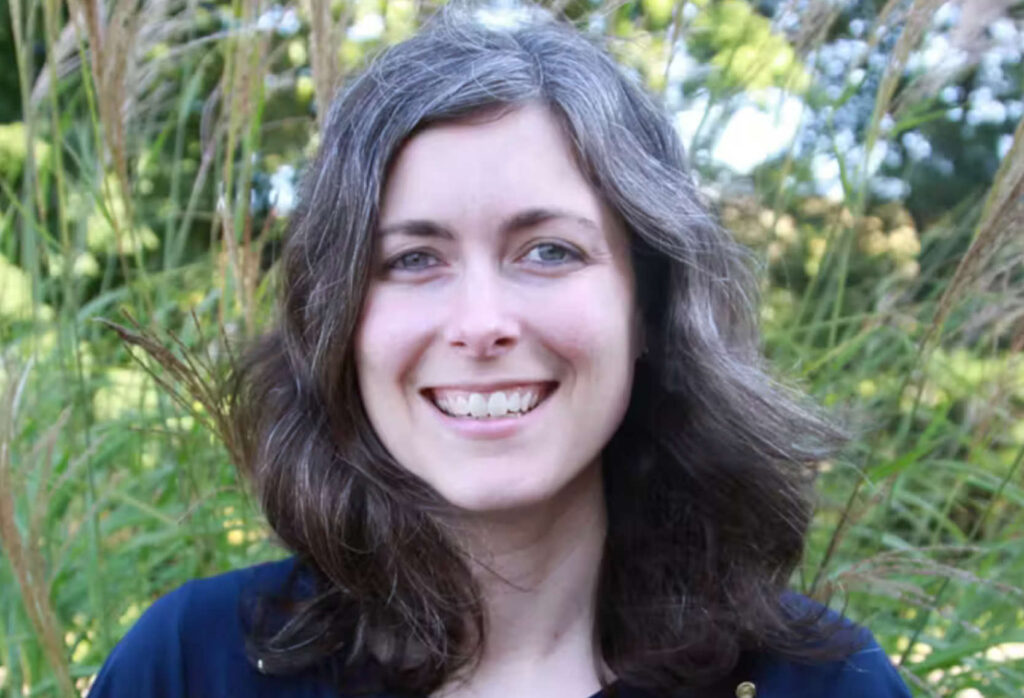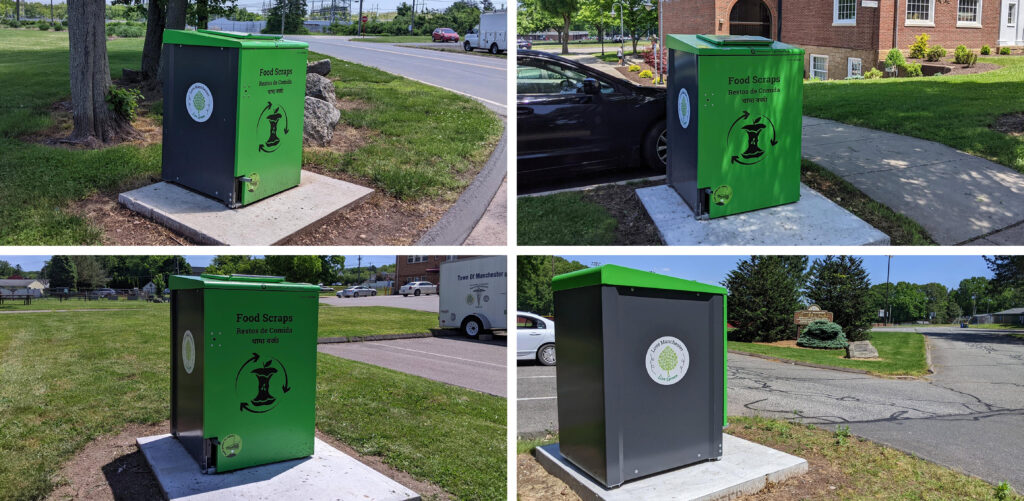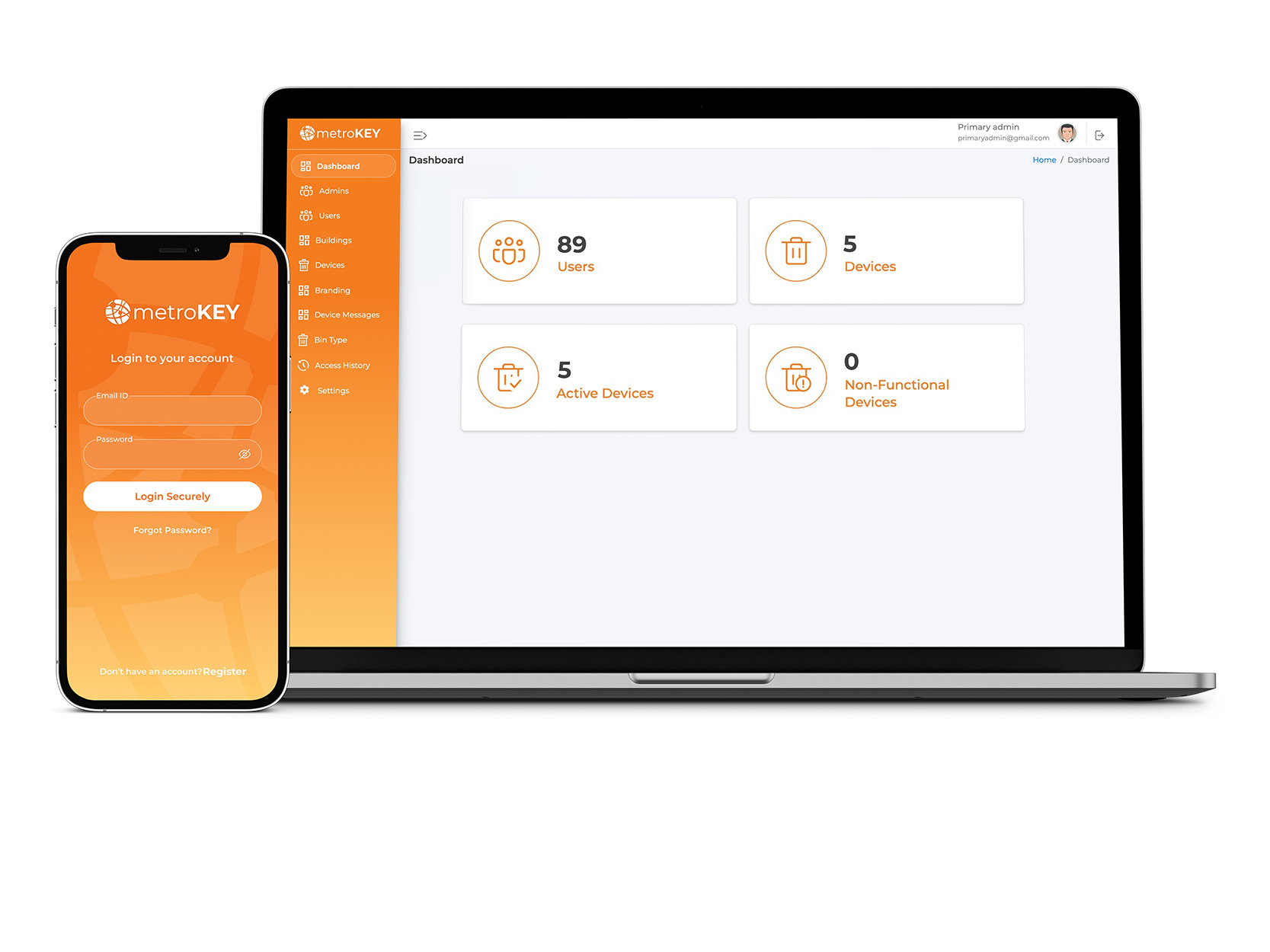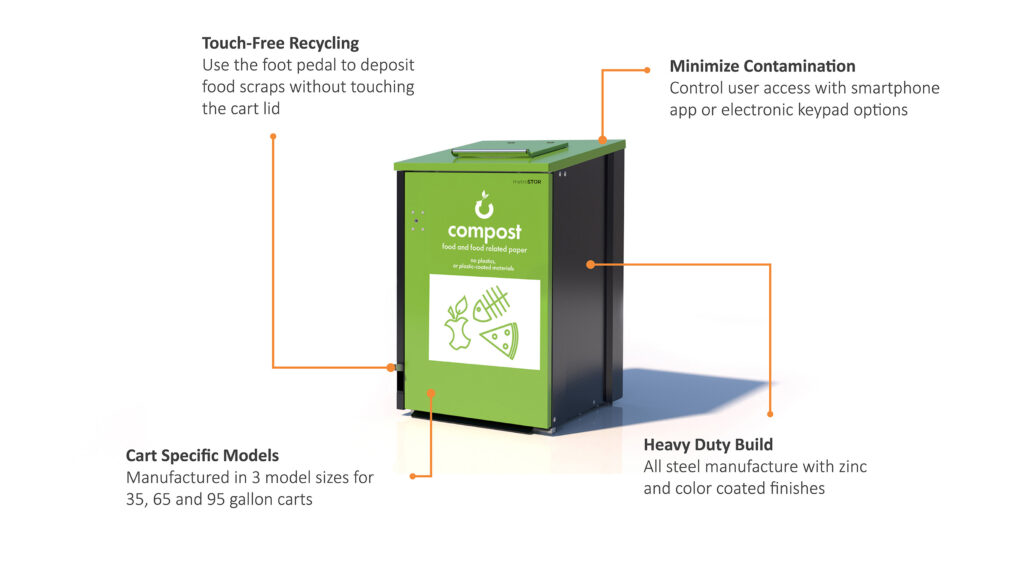
Inspiring residents with new ways to recycle food Scraps
Manchester is situated in Hartford County, Connecticut and is home to around 60,000 people. With around a quarter of residential trash being made up of food, Rachel Schnabel, Recycling & Community Coordinator for the town is looking to tackle the issue of organic waste recycling head on…

“The thing about trash that most people don’t think about is that it needs to go somewhere. In Connecticut right now, most of the trash is getting hauled out of state and that’s not good for the environment for a number of reasons.”
With residential food waste making up 40% of all wasted food in the US, Rachel and her team went about creating a new way for the people of Manchester to have a better impact on the environment. The initial idea was to pilot the addition of food waste collection to one of the five curbside pickup days already in operation. However, Rachel was focused on creating something that could be easily scaled to inspire other communities. With this in mind, the Food Scrap Drop-off Pilot Program was born.
“If you make it really easy for everybody who is interested to be involved, you’re going to get others interested and that interest will grow.”
The idea was simple – give residents an easy and accessible way to dispose of their own food waste, while educating them on the positive impact it can have on the wider community. Once registered for the program, households receive a free food scrap pail with compostable bags and can start making a difference. Four locations across the town form what Rachel calls the “Food Waste Diamond” and is made up of already well-frequented sites in the town – the Transfer Station, a neighborhood park, one of the town’s libraries and a senior center.

Thanks to signage and communication, residents know exactly what items can and can’t be accepted. The drop-off points are then emptied and taken to one of two anaerobic digesters – one in nearby Southington CT and one in Agawam in the neighboring state of Massachusetts. Importantly, both of these sites are within a 40 minute drive from Manchester, cutting down on that mass cross-state haulage. While the food waste is being composted, the biogas created in the process is captured and used to generate green energy.
“We want to make it very clear when we’re looking at the data that this is what we are diverting from the trash that we would normally collect.”
A key part of this pilot program and future scaling was data collection. In order to do that, the team in Manchester needed total control of who was participating – something not always associated with refuse collection. Open the program to anyone and they may miss crucial information, increasing the risk of contamination. Different households also have different rules – for example, apartment complexes need to pay for their own waste diversion so would not be on the regular collection route.

In order to operate a closed-access pilot, the team opted for a combination of satellite linked cart enclosures and the metroKEY app by metroSTOR. Residents are able to download the app allowing them to use their cellphone to access the units. Operators can then not only monitor who is using the carts but also when they are being used. For example, in the unlikely event that incorrect items are deposited a warning can be issued with the ability to ultimately ban repeat offenders. To combat this, information on accepted materials is easily communicated to the user within the app, as well as a live map showing all four satellite cart locations. Users also have the ability to report any issues which can be swiftly dealt with.
“One thing we like about these units is they’re enclosures for your standard trash cart.”
When choosing a food waste cart enclosure for residents to interact with, there was a lot to consider. A secure lid to minimize any unpleasant odors was a must, as well as the ability to open the lid and also have both hands available for disposing of food scraps for a user-friendly experience. Haulers advised that carts be no larger than 65 gallons due to weight restrictions with hauling equipment. Finally, the enclosure had to support the closed-access features of the metroKEY app.

The metroSTOR F-series was the perfect choice to meet the needs of the program. Its foot operated lid means that users can safely dispose of their organic waste hands-free, providing a clean and hygienic experience, as well as a secure lid to minimize any unpleasant odors. The enclosure also comes in three standard trash cart sizes – 35, 65 and 95 gallons, meaning that haulers don’t need to change their workflow around new equipment. Crucially, the F-series is available with a number of access options including BLE (Bluetooth Low Energy) to communicate with metroKEY.
“We’re excited to watch this program grow and see how it affects the future of food waste disposal.”
So far, the pilot program has proved very popular with residents. Thanks to the combination of the metroSTOR F-series cart enclosures and metroKEY, contamination issues have been kept to a minimum. Currently, there are over 120 active app users for the satellite carts and that number continues to grow. On average, the program is diverting around one ton of food scraps per month, helping to combat the 290 lbs of food wasted by every American citizen per year.
What’s clear is that everyone taking part cares about doing the right thing for their community. It’s a great start for Manchester and, more importantly, will serve as inspiration to other towns, cities and states across the USA.